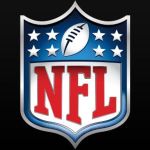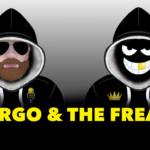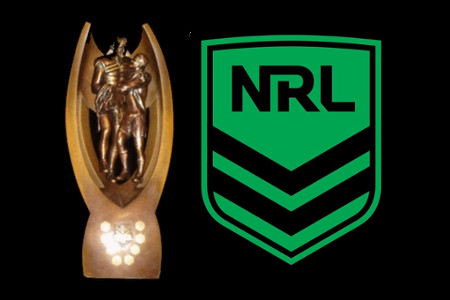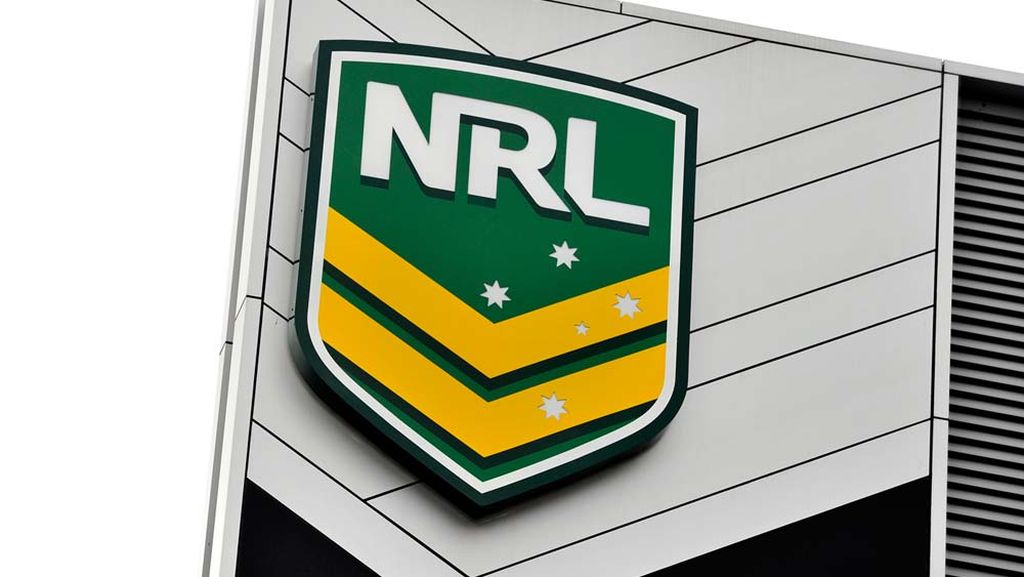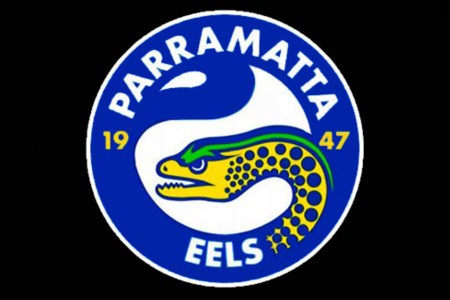Depression – It is a word that has a different meaning to many different people. To those who suffer from it, it is a daily burden and something to manage in order to prevent further health implications. To those who are ignorant of it, it is a disease for the weak minded and those who can’t handle the pressure. The Oxford Dictionary defines depression as a “severe, typically prolonged, feeling of despondency and dejection”. The life meaning however is more complicated and results in significant hardship and sometimes tragic circumstances for those affected.
In sport, as in life, there is a stigma related to people suffering depression and it has impacted many sports, not just Rugby League. While the off-season news has been dominated by the ASADA drug scandal it is important not to lose site of an underlying issue facing the game today.
In only a matter of weeks the Rugby League world has seen one of its rising stars, Ben Barba, walk away from the game for an unknown period, as well as two separate suicide attempts by other players, one of which ended in tragic circumstances. Yet while there is such hardship in our game there are still portions of the general public so ignorant of the issues that they only suggest players should “Harden Up!”.
Depression isn’t a new issue for Rugby League. Perhaps our first exposure to the issue in mainstream media came after Tim Smith, in 2009, revealed he suffered from bipolar disorder and withdrew from the NRL indefinitely. Smith, much like Barba at the time, was a rising star at the Parramatta club and was carrying lofty expectations to be the next Peter Sterling. After what many described as a startling admission, some of Smiths’ peers followed suit, with Legend Andrew Johns revealing he had suffered from depression in his career which ultimately led him down a path of illicit drug use.
It was at that time the NRL first acknowledged the issue and the Rugby League Players Association and the NRL began to institute training courses for Education and Welfare Officers, a compulsory position in each club, to provide them skills to identify players with mental health issues.
In 2010, Cory Paterson was the next young player to admit to suffering from depression. Paterson was quoted as saying “There was no trigger. Everything was just adding up. I wasn’t playing good, I was down on myself and I wasn’t sleeping. I was feeling really lonely but pushing those close to me away and wasn’t in the mood to be around anyone. When I was, I was just snapping at everyone”.
At this time social media was beginning to peak with many proclaiming Paterson should “Stop crying like a baby and get on with playing football”. While the NRL had put in place policies to identify mental illness in its players, there was still obviously a gap in education.
Fast forward to 2011 and another reigning Dally M medallist in Todd Carney had revealed he suffers from alcohol addiction after being stood down by the Sydney Roosters. This addiction was in fact a by-product of an underlying issue that Carney was in fact battling depression. While many would believe that being depressed just means you have a sad face all the time, it manifests itself in many ways and in Andrew Johns and Todd Carney’s case that was substance abuse and alcohol.
The NRL has come a long way in recognising the impact of Mental Health on its elite athletes. The first official association appears to be with the Canterbury Bulldogs in 2010 partnering with BeyondBlue to raise awareness for depression and anxiety in the sporting community.
Bulldogs CEO Todd Greenberg said at the time “Depression and anxiety are illnesses, not weaknesses. The Bulldogs have an obligation to use our reach and profile to encourage discussion about these mental health conditions”. He once again showed tremendous leadership in his handling of Ben Barba’s situation.
In 2011, then NRL CEO David Gallop created a partnership with the Black Dog Institute to initiate a training program to help the rugby league fraternity. Professor Gordon Parker, the founder of the Blake Dog Institute, described the partnership program at the time as being “aimed at all levels within the clubs, including players, coaches, trainers and administrators. The training program was designed to de-stigmatise mood disorders and improve skills in managing individuals with a mood disorder”.
Gallop, when announcing this partnership, perhaps described it best when speaking to the Australian’s Stuart Honeycutt:
“They live on a roller-coaster with the physical and mental demands on them beyond the comprehension of people who don’t play footy. Anxiety around their performance, the prospect of a career-ending injury and the expectation of their fans and the media are all a pretty lethal cocktail.
“In a sport where toughness means more than just the physical demand on players’ bodies, it’s a brave call to admit to dealing with depression.”
When reviewing the RLPA and NRL’s Welfare and Education program it is clear the NRL is getting more serious with mental Illness. When reviewing the program it is important to note that all NRL clubs are obligated to employ a Welfare and Education officer who must at the very least have Mental Health 1st Aid education. This is a clear step in the right direction in fighting mental illness in the game.
But while the NRL and professional codes attitude towards mental illness is improving, it appears the greater public fails to acknowledge the issue, believing that elite athletes are somewhat immune from suffering from depression or struggling emotionally. There is a predisposition among the general public, not just in Australia, but globally, that athletes due to being physically and mentally fit and tough, earning significant income and playing in a domain that fans would only dream of that they cannot be emotionally detached. Many athletes believe similar to former Tampa Bay Devil Ray player Russ Johnson that “Physical ailments are tolerated in professional sports, while athletes with depression face stigmatisation”.
What the public need to understand is the depression does not discriminate on any basis, on race, on sexuality, on gender or on monetary compensation. The greater public often don’t see the level of sacrifice that an athlete puts in to hone his/her craft and the stress associated with trying to achieve both personal and fan expectations. A professional study conducted by Livestrong in 2011 suggests that, “Athletes may however be more inclined to mask their symptoms out of fear of disappointing parents, coaches, teammates and fans”.
Depression has been a hot issue in global sport for some time with many who suffer from it heavily scrutinised by social media and the tabloid media. Manly of the world’s elite sportsman like Marcus Trescothick, Andre Agassi, Serena Williams and Freddie Flintoff have suffered from depression but these athletes believe they had to suffer in silence and when finally revealing their illness were mocked and criticised.
Flintoff took part in a BBC One Documentary entitled the “Hidden Side of Sport” and in it was a startling interview with the controversial Piers Morgan in which Morgan claimed that Sport and news journalists ,“Didn’t really care, our view then was that if you’re called to play for your country at sport, then it’s such an incredible privilege and honour that to actually claim to be depressed because you’re having to stay in a five star hotel while you’re playing cricket for England to me seemed ridiculous”.
Morgan then echoed what many of the general public proclaim as the solution to mental illness among elite athletes “get over it”. Morgan later stated that he would take any bad headline if he could “Bat at Lord’s or play up front with Robin Van Persie”.
Do such statements sound familiar to you? We’ve heard similar sentiments on social media outlets for the last three weeks in relation to the NRL. Many members of the general public were proclaiming that Ben Barba should just “get over it” and “I could deal with it if I was earning his money”. The fact of the matter is that the people stating those opinions are obviously liars because most wouldn’t be able to deal with the training and the pressure and the expectations to deliver consistently.
All this comes back to the misunderstanding of mental Illness being a weakness instead of being the result of physical, psychological and social circumstances around a human being, of which our elite athletes are of no exception. It is the attitude similar to that of Piers Morgan and parts of the general public that ensure players will suffer in silence due to the overwhelming stigma associated with depression.
You may be wondering why I decided to write this article. The reason is simple. I suffer from depression. While being only diagnosed by my GP seven years ago, I refused to believe that I had depression. There was a stigma at the time that having such a disease meant that you are somehow lesser of a man.
For years, and sometimes even now, I have thoughts about self-harm and about how much of a failure I am at life, as a son, as a friend, as a brother and a boyfriend. Those days are few and far between now as I acknowledged I had a problem and while it may seem contradictory that I never discussed my issues with those in my inner circle, I did reach out to numerous outlets for assistance.
With the unforgiving and relentless public and media, the inconvenient truth is that the fight against the predisposition of those with mental illness is far from over. If there is one thing I have learnt personally over the last three weeks is that while our sporting bodies have come a long way in the fight against mental illness we, as a society, need to do and must do better. Because given the odds, being that 1 in 10 people suffer from mental illness, someone in your life may need your help and someone to reach out too – it may as well be you.
If you feel like you have the symptoms relating to depression or anxiety please contact:
Lifeline – 13 11 14
BeyondBlue – 1300 22 4636
Please leave your comments below or join the conversation on social media:
Twitter – @Sports_Rush or @Mickyt1985
Facebook – Become a fan of Sports_Rush by following this link https://www.facebook.com/pages/Sports-Rush/225909534215100

